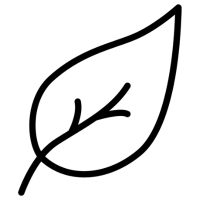Every triathlete or endurance athlete typically has at least one rest day from training during the week. Although every athlete is different, if you feel extra hungry on rest days versus training days, you are not alone! Why is this? A simple look into energy metabolism, physiology and nutritional habits will shed some light on a few reasons why this may be.
Before you have burned even a single calorie through exercise, there are some basics that help determine the amount of food you should be consuming in a 24-hour period.
- Basal metabolism: the amount of energy (calories) your body requires to maintain your basic physiological needs. This varies based on gender, age, weight, height, etc.
- Body composition: the more muscle mass you have, the higher your metabolism, and the more you need to eat to maintain your weight.
- Circulating hormones: our central and peripheral systems are very intricately connected and circulating hormones have a major impact on our feelings of hunger and satiety (ex. insulin, leptin, ghrelin, PYY, CCK, etc.)
And what about the rest?
INADEQUATE RECOVERY
Training leads to breakdown of muscle tissue, ultimately leading to changes in body composition and training adaptations. However, whenever muscle is broken down, it takes a significant amount of energy to repair those tissues. Proteins from the food you eat are broken down into amino acids, which are then used to rebuild muscle tissue. This means that after training, you will have increased energy and protein needs, so it is reasonable to say that you feel hungry on rest days because your body may still be recovering from previous training sessions.
Inadequate recovery, in terms of the quantity and quality of nutrients consumed post-training, can negatively affect muscle recovery and make you feel hungrier later in the day or the day after. The most common (and modifiable) dietary reasons for inadequate recovery are lack of a protein-rich snack or meal within the hours after training and trying to cut carbohydrates. You should be eating 0.25-0.35 grams of protein PLUS 1 gram of carbohydrate per kilogram of body weight within approximately one-hour post- training. For a 60 kg (130 lb) female, this would be equal to 15-21 grams of protein and 60 g of carbohydrate (ex. ¾ cup of vanilla flavoured greek yogourt with ¼ cup granola and 1 banana).
POST-EXERCISE APPETITE SUPPRESSION
During exercise, hormones trigger the release of stored muscle glycogen and also up-regulate glucose production from the liver. This is why, shortly after exercise, hunger is suppressed. However, post-exercise, as hormone and blood-sugar levels begin to drop, only then will you start to feel hungry. Additionally, the body detects that glycogen (glucose) stores in the liver and muscles are low and signal the brain to ramp up hunger hormones, thus triggering you to begin the refueling process. So if your training sessions tend to be towards the end of the day or evenings, you may experience this “rebound” hunger the next day, especially if you did not eat enough or recover adequately after your training.
CATCHING UP FOR MISSED MEALS
When you leave for a 4-hour training block or are training twice per day, it is likely that you will miss a meal. More time spent training translates into less time spent eating, and missing meals creates an energy deficit. When the body detects an energy deficit (which may happen the day after a heavy training day), appetite stimulating hormones start signalling to eat more, making you feel hungry.
LESS FOOD & HYDRATION ON REST DAYS
If you have a meal plan from a sports dietitian, you know that you are supposed to eat less during a rest day. This makes sense as you are expending less energy. So, typically you will have less snacks during the day (re: pre- and post-training snacks), and slightly smaller portions at the meal which usually follows your training session. You may also not hydrate adequately on a rest day, something we usually pay close attention to when we are active. If you have the habit of eating more, then you may feel you are not eating enough, and feel hungrier.
In short, fluctuations in appetite are normal, especially when you are training for three sports! There is no one-size fits all approach, but if you pay close attention to your nutrition on training days and ensure to optimize your recovery, this will help keep your hunger in check.
Stephanie Jamain, M.Sc, RD, CSSD
Sports Nutritionist




